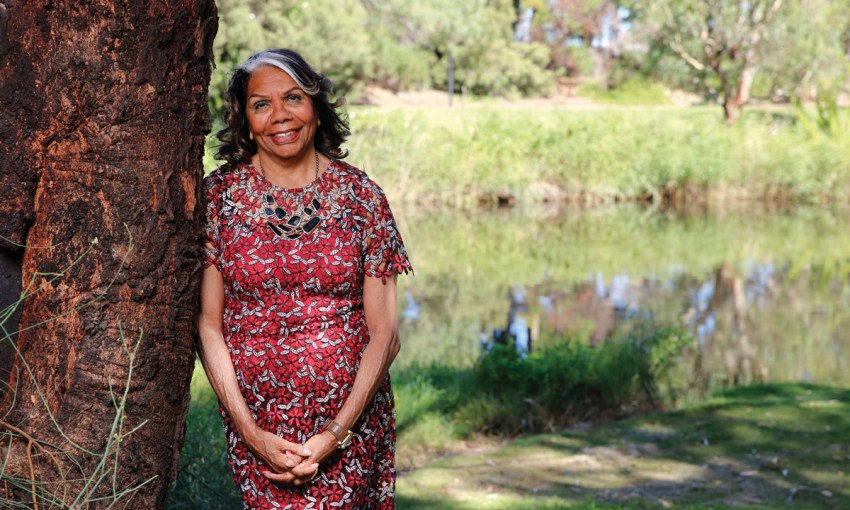Trailblazers in their male-dominated professions, these inspiring South Australian women have broken new ground for others to follow. Here, they tell SALIFE about the challenges they have faced, how they overcame them and what is still to be achieved.
Words of trailblazing wisdom
Rosemary Wanganeen – Founder of the Healing Centre for Griefology
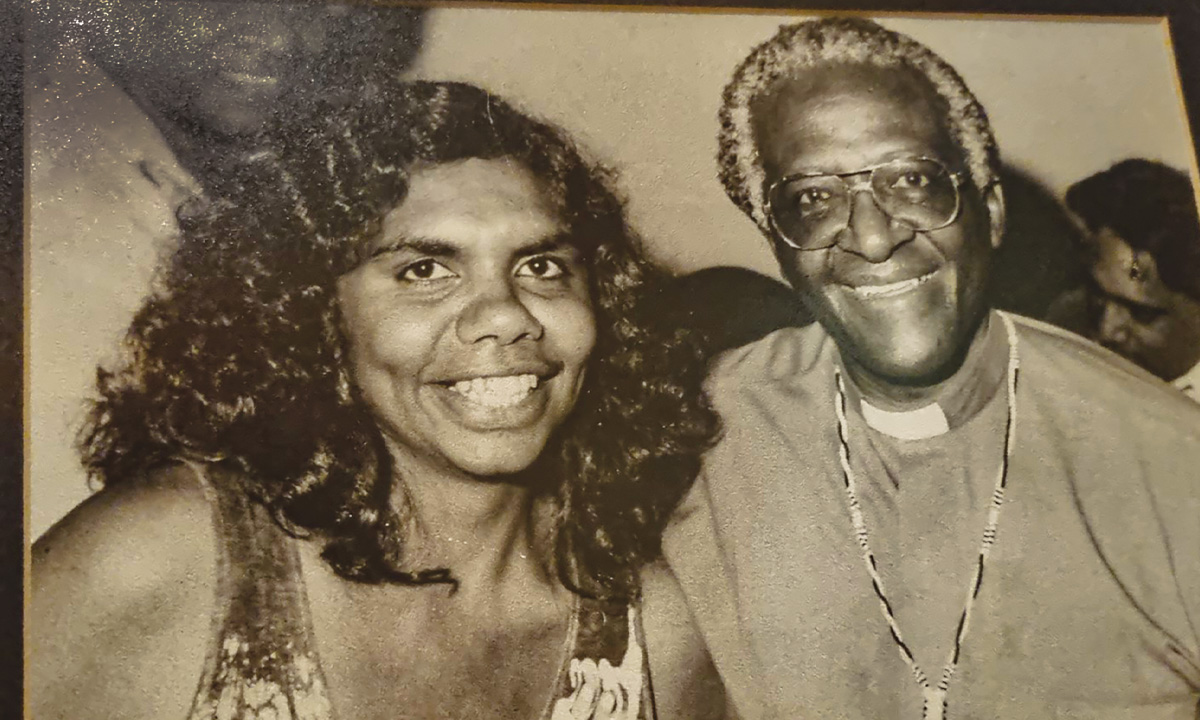
Meeting human rights activist Archbishop Desmond Tutu in 1987 was an inspiring and motivating experience for Rosemary, who was a research officer for the Committee to Defend Black Rights at the time, as they worked to initiate a Royal Commission into Aboriginal Deaths in Custody.
Can you give us a brief summary of your career?
I’ve worked in the space of health, welfare and social justice for Aboriginal people for nearly 30 years. My career has been motivated by my own experience as a South Australian Aboriginal woman with ancestral links to the Kaurna of the Adelaide Plains and Wirringu from the West Coast. Today, as a Griefologist and Counsellor, I study the human relationship between ancestral losses and their suppressed unresolved grief. I believe Griefology can help people of all cultures to prosper, which is a human right for all. I’m also currently undertaking a Master of Philosophy at the University of Adelaide.
What are you passionate about in the work you do?
My passion for Griefology has exploded into a multitude of life experiences and into many sectors outside of my field of work. My career has not just shattered the glass ceiling as an Aboriginal woman but has also allowed me to intuitively research Griefology across a number of decades.
What were some of the challenges you faced early on in your career?
The most significant challenge or barrier to me thriving as a businesswoman was two pronged: I secretly feared mainstream society because I would experience rejection simply because I am a woman and, worse, a percentage of these rejections would be racially motivated. And two, I would experience rejection from pockets of my Aboriginal community because to become a businesswoman meant “you’re not Aboriginal, you’re becoming too white”. You see, Aboriginal culture was never about starting up and operating a business, hence why I feared success even more than failure. I hope to help other women who are secretly fearful they may not be able to withstand the patriarchal systems, irrespective of their cultural identity.
How did you overcome these challenges?
A couple of years into maintaining the business, I realised my fears of success or failure were not so much external, but internal. I had to change the dialogue of my inner voice from fear of success or failure to knowing that I had a right and responsibility to respectfully own my place in the world. On reflection, any challenges and barriers were not so much external because I had some truly genuine support on the sidelines wanting me to succeed. Here I am in the 28th year of my career, planning for the next 28 years.
What has been the most significant improvement for Aboriginal women during your career?
When I was born in 1955, Aboriginal people were still legally controlled by the government under inhumane policies such as the 1911 Aborigines Act that forced my parents to bring me back to the “mission”. I was five when my family left the “mission” but we were still managed by welfare and at age 10 I became part of the Stolen Generation. My adult children are the first generation born “free citizens”. This proves how far Aboriginal and non-Aboriginal society has come and that Aboriginal women in any profession can forge their own careers with all their needs, wants and desires are at their fingertips.
What is the one piece of advice you would give young women entering professional work today?
To break your glass ceiling, become extremely conscious of the inner voices that have been or could become your personal barriers to finding and maintaining your passion, whatever your cultural background. External barriers could just be a figment of our (female) imagination!
Dr Lilian Kow – Bariatric Surgeon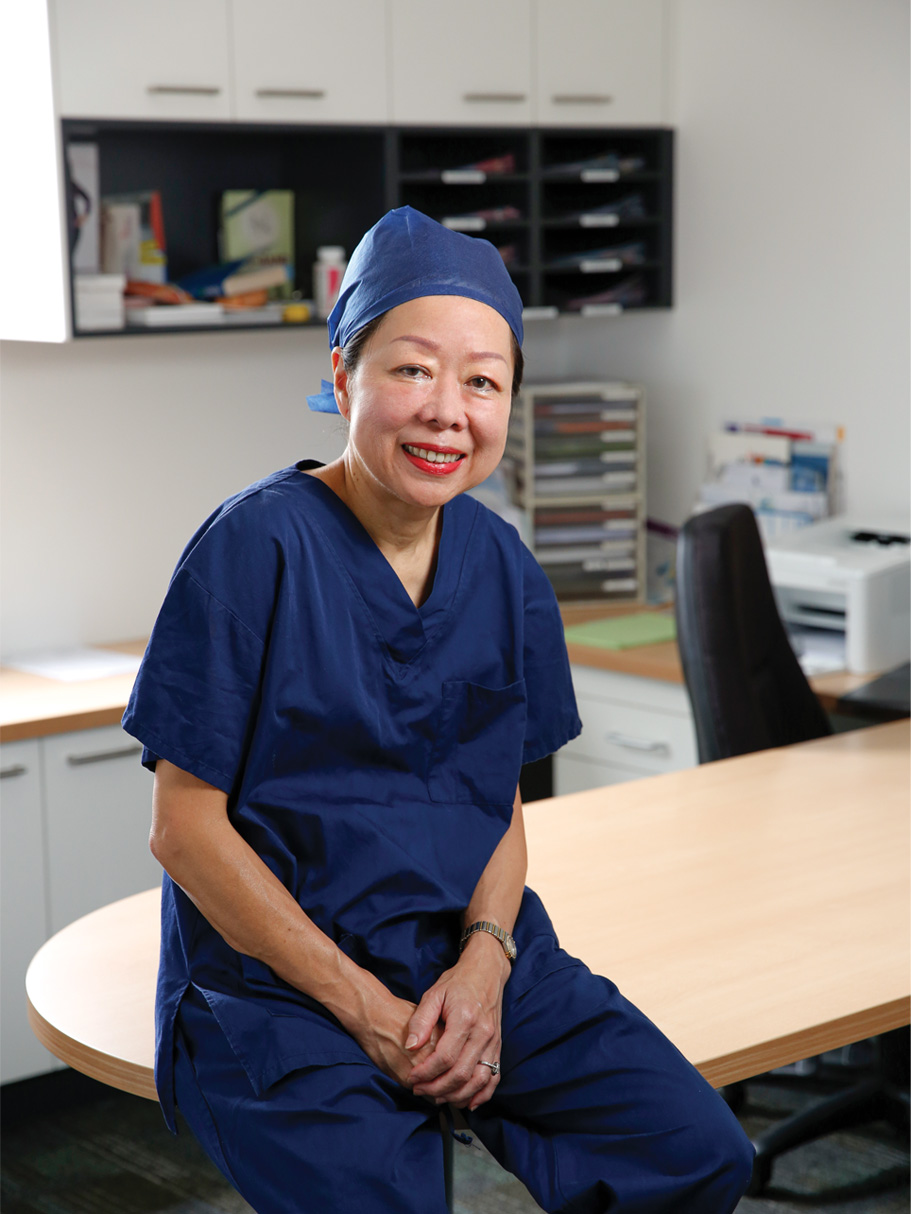
Can you give us a brief summary of your career?
After graduating medicine, I embarked on surgical training and research, completing the RACS Fellowship and PhD in 1996. My surgical career began as hepatobiliary pancreatic and liver transplant surgeon at Flinders Medical Centre. My career changed when laparoscopic gastric bands were introduced to South Australia in 1996.
My colleagues and I became pioneers in gastric band surgery and thereafter in weight loss (bariatric) surgery in Australia. Subsequently, I assumed the roles of being the first woman President for obesity surgery societies – national (ANZMOSS), regional (Asia-Pacific Chapter) and global (IFSO). I am currently IFSO president. I have a busy workload combining this with being Clinical Director of GI Surgery at Flinders Medical Centre and Director of the Adelaide Bariatric Centre.
What were some of the challenges you faced early on in your medical career?
I learnt first and foremost to believe in oneself. There will always be challenges in one’s career, be it from other women, peers, male colleagues, friends and family. It’s about juggling a career combined with a demanding and competitive surgical training and balancing one’s social and family life.
Unfortunately, there are gender stereotypes around what are and are not appropriate career and life choices for women to make. One of the greatest challenges I faced was the lack of a female role model in Adelaide, where I did most of my surgical training.
When I was accepted into general surgical training, I was told that there had been no female trainee for the past 20 years in South Australia.
How did you overcome these challenges?
I was always passionate about a career in surgery. I believed in myself and my capabilities. Fortunately, my professional peers, mentors and family encouraged me to face up to the challenges. I was also fortunate to have spent my student elective in surgery at UCLA in Los Angeles. There I met a senior female surgical trainee whom I befriended and she was a role model for the early part of my surgical training.
What has been the most significant improvement for women in your profession during your career?
Many more women have been accepted into surgical training. Not only do we have women surgeons in almost every surgical subspecialty in South Australia and Australia, but we are getting recognised by our peers and our society.
What is still to be achieved for women in your profession?
Removing all of the barriers to women in surgery will require fundamental and long-lasting social changes in how people perceive the role of women within society, and increased understanding of the fact that a person’s career opportunities should not be limited by their gender, race, or sexual orientation. This will take time.
What is the one piece of advice you would give young women entering your profession today?
I would encourage all young women to realise that they are the future of their profession. They can have an active role in advocating for better policies on gender discrimination to be implemented at university as well as larger professional health care institutions.
In addition, they can support their institutions to develop explicit declarations or commitments against gender discrimination. In this way, we can make surgery a better profession; not just for women, but for everyone seeking to provide healthcare in an environment free from discrimination.
Robbie Bower – Owner, Bower Construction and Design
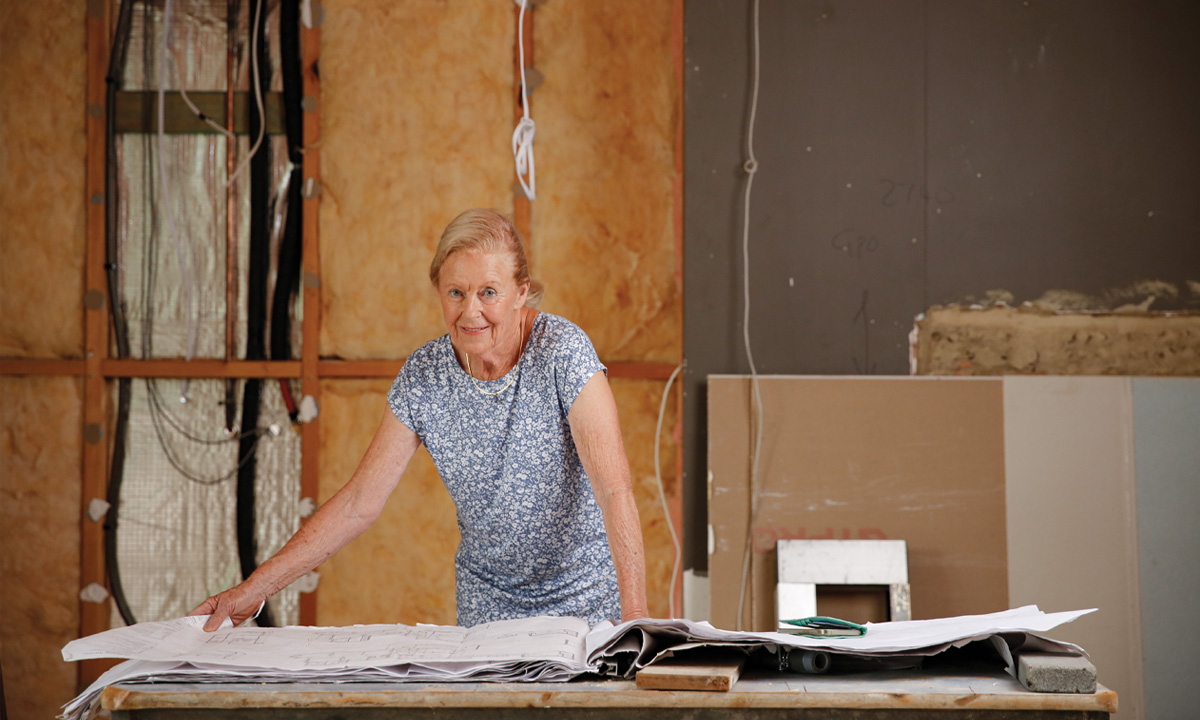
Can you give us a brief summary of your career?
It was an accidental career. After my husband and I separated, I was suddenly the sole breadwinner for three young boys. When I lived in Sydney in the 1960s I bought my first house, did it up, and sold it for a fantastic profit. A few renos later and back in Adelaide, with my sons to support, I decided that flipping houses would be a great way to stay afloat and pay the school fees. I had no formal background; I just enjoyed it and had a knack for it. It wasn’t long before people started asking me to build for them. I learnt how to run sites from the trenches up. I learnt to read sub-contractor’s plans and got my builder’s licence 40 years ago.
I set up Bower Construction in 1976 and my sons Piers, Josh and Sinclair now run the company alongside me. It has grown bigger than I ever imagined and I feel so fortunate to have forged an enduring career as a Master Builder in South Australia.
What were some of the challenges you faced early on in your career?
It was very common to receive a phone call about a potential job and the person at the end of the phone would be shocked that I was a woman. They were expecting Robbie Bower to be a man. I used to laugh; I found it amusing.
There’s no doubt construction is a very male-dominated world but I think I have managed to navigate it well. We all have respect for each other on the building site and – I know it’s not very politically correct these days – but I always say that I’m the only builder who can kiss their workmen!
Some of the language on site can be very colourful; mostly it’s not too distasteful. There may be a bit of wolf-whistling; I used to get that a bit as a younger woman, but I didn’t really mind.
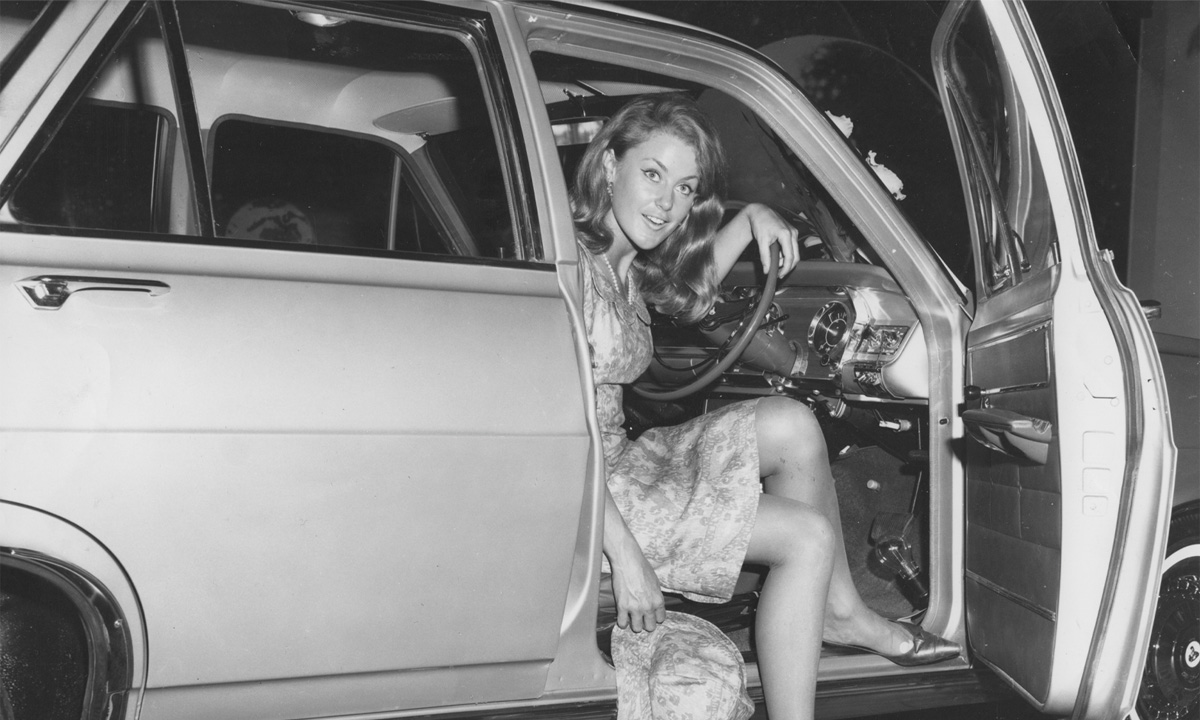
How did you overcome these challenges?
As a woman, I think I brought a unique perspective to the building process and always considered how a house would work for a family.On the whole, I didn’t encounter anybody who was too rude but there’s no doubt there were aggressive men around who didn’t want to take orders from a woman. I just made sure we didn’t have men like that in our team.
Physically, building is heavy work and I’ve now had two back operations, probably from lugging huge bags of cement around. I used to get on the tools a lot, I’m very good on a shovel, I’m a good demolisher and I can flood [finish] concrete. But I’m not on the tools anymore at my age.
What has been the most significant improvement for women in your profession during your career?
It seems to be more acceptable for women to work on construction sites these days, and I would say generally women are succeeding in lots of male-dominated industries. I would employ a female tiler or carpenter if she was top of her field.
What is still to be achieved for women in your profession?
I think there could still be more women in the industry. I was on a job last year and there was a female steel fixer working on a swimming pool, doing very heavy work out in the sun. That was most unusual. So, while there have been advances, I think we still have a way to go for women to be more commonly involved in the construction industry.
Any advice for young women who want to enter the building trade?
No matter what field you work in, play to your strengths and what is unique about you. Construction is a fantastic career. You’re mixing with the best people and the humour on site is amazing, we tease and laugh a lot and there’s a kind of irreverence. It’s quite special to see things grow from the ground up and everyone takes pride in their work. I look back on my career very fondly. I’m 79 this year; I’m still enjoying it and I can’t imagine being retired. I still work five days a week and I’m on the job at 7.15am. I can’t imagine sitting at home; I love what I do.
Diana Laidlaw – former Liberal politician
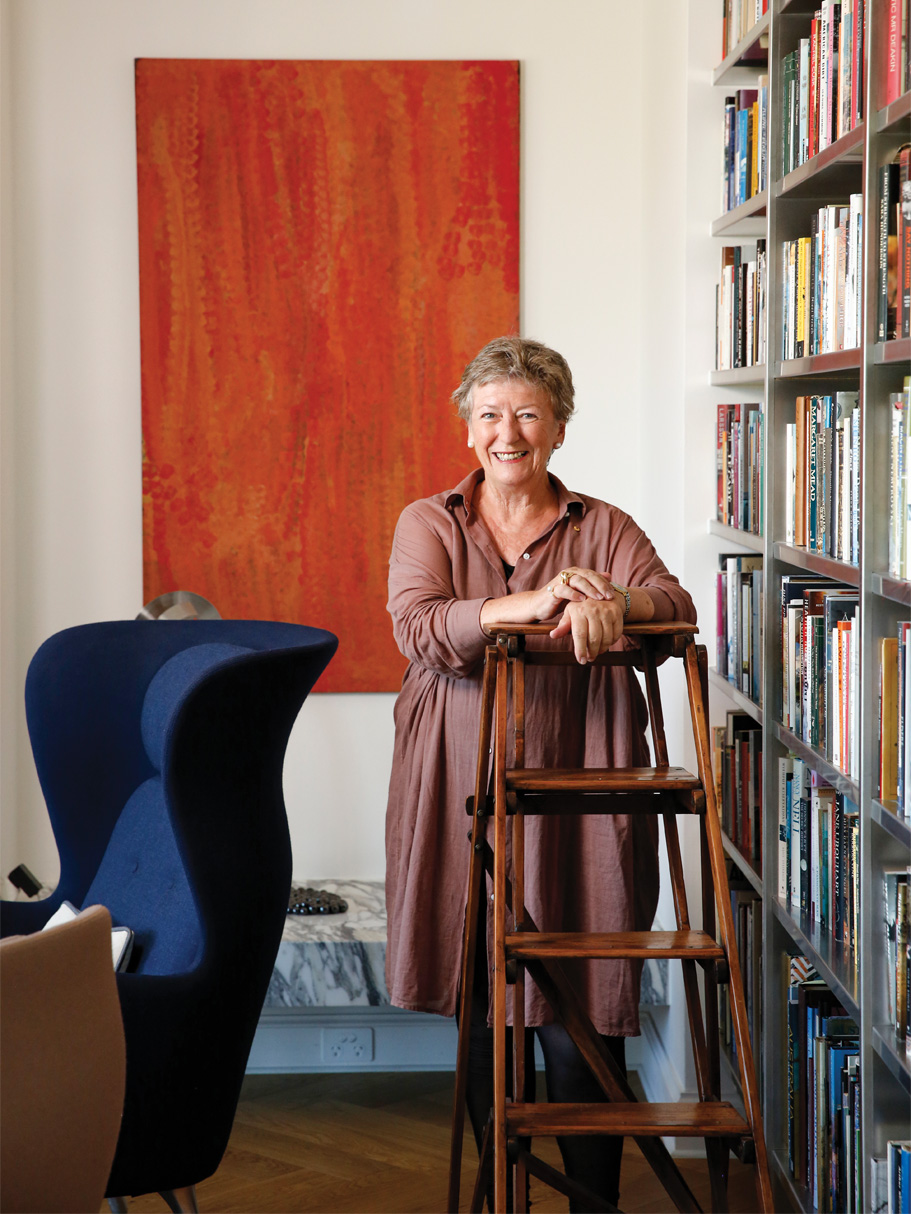
Can you give us a brief summary of your career?
In 1982, aged 33, I was elected to the South Australian Parliament – only the second Liberal woman in the Legislative Council’s 140-year history. In 1993, I was appointed Minister for Transport, the Arts and the Status of Women. Four years later, Urban Planning was added to this magnificent mix of portfolios.
I loved my job – well, most days – and for almost a decade I served continuously in all the positions to which I was first appointed, the only minister to do so. For much of my parliamentary life the only other woman in the room was a framed portrait of Queen Elizabeth ll. I retired in June 2003 and later received an Australian Honour and an Honorary Doctorate (Flinders University) for services to South Australians through the arts and improved transport systems.
What were some of the challenges you faced early on in your career?
An initial challenge was the fact both my father and grandfather were members of South Australian Parliament before me. I quickly understood that I not only had to prove to the electorate that I was a conscientious representative, but I had to prove to the men in the Parliament that I was not simply my father’s daughter.
I encountered some grubby MPs over the years. Every time, my leader listened to me and acted on my behalf. Fortunately, I never had to resort to the media for help. Maybe if that was my only option, I would have remained silent for fear I would compromise the job I loved or the career I wished to build.
The agenda for women and girls was big and their expectations for change high. Despite the best will in the world it was never going to be possible for me to fight on every front or win every argument. It always upset me when I had to tell anyone that I could not champion a cause dear to their heart.
How did you overcome these challenges?
Like many women, I have a superb “crap detector”. I also developed a thick skin. I found workspaces outside Parliament House where I was at ease, with deck chairs that unsettled the men who liked to thump a table. I learnt early on that it was counterproductive to be angry or rude every time anyone upset me. To win any issue I would always need 50 per cent of the vote plus one … and 98 per cent of those votes would be cast by men. Over time, many men inside and outside the parliament came to be my greatest allies and advocates.
With hard work, I did enjoy some lucky breaks. But sometimes, at the end of a bad day, it was cathartic to come home, pick up a hammer and smash a tile – years later to be used in a mosaic.
What has been the most significant improvement for women in your profession during your career?
The legislation to outlaw discrimination on the basis of gender or marital status, first introduced in 1974 as a Private Members Bill by Liberal MP David Tonkin. When it was enacted in 1975, South Australia became the first Australian state to introduce Sex Discrimination Legislation.
What is still to be achieved for women in your profession?
Women have never sought what men have long enjoyed – 100 per cent presence in Parliament. But 50 per cent and above remains an elusive benchmark, and major parties are still falling short when preselecting women for safe seats. The recent success of women as independent candidates may hasten change.
What is the one piece of advice you would give young women entering professional work today?
Maintain your personal integrity, which includes ensuring you don’t do anything that you would not wish to see on the front page of the daily newspaper!
Barbara Sibley – Stockbroker
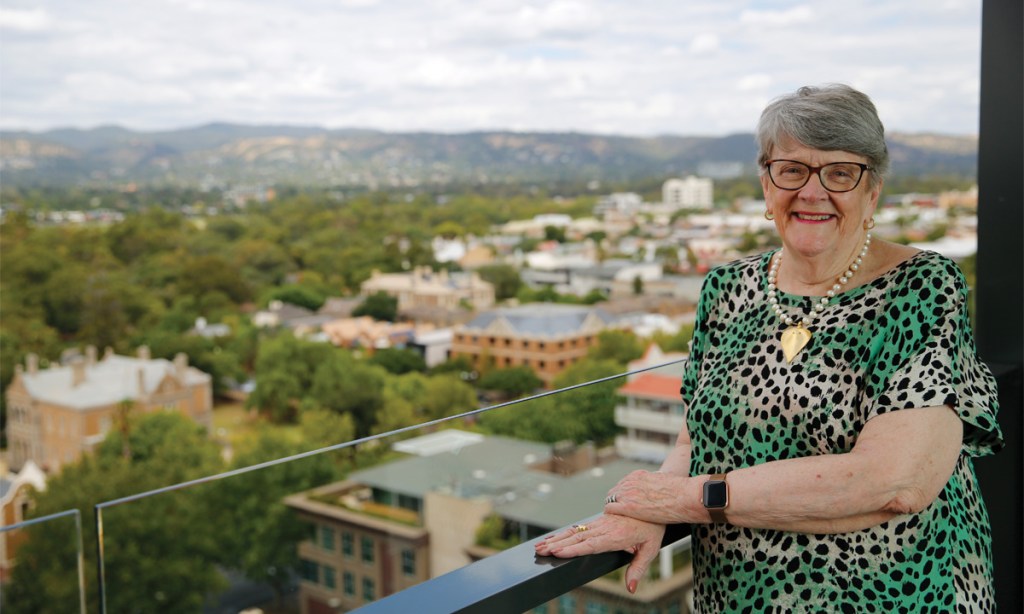
Can you give us a brief summary of your career?
I started working at a stockbroking firm in 1957 at the age of 17. I chose stockbroking and I’ve never regretted it; it’s been my life up until I retired in October last year.
After a break to have children, I became a stockbroker in 1984 and subsequently experienced the 1987 crash. The phones just didn’t stop ringing, people panicked, and there was a lot of buying and selling.
From 2004 to 2021 I was director of the Adelaide Branch of Morgans, the largest stockbroking business in Australia. I’m most proud of the rapport and trust I’ve established with clients, some of whom I worked with for more than 30 years; a long time to build a relationship.
What were some of the challenges you faced early on in your career?
When I started, I was the only female at the company for a long time. It was a male-dominated industry and some felt threatened by a woman who was able to do what they could. It was tough in those days because you were treated as if you weren’t capable. It all just gave me an incentive to prove that I could do it.
Many of my colleagues would go to the male-only Stock Exchange Club for lunch and some of them wouldn’t come back for the whole of that afternoon. One particular broker invariably did come back to the office, but was almost incapable of holding a conversation. When the phone rang and the brokers weren’t around, clients were happy to speak with me and sometimes I was accused of taking their clients away from them.
How did you overcome these challenges?
I very quickly learnt to hold my own in that environment and I never felt intimidated to the extent that I’d come home upset. Some of the men were very respectful, but others were less so.
When I was 17, on my second or third day, a colleague in his mid-20s made advances to me that these days could be deemed harassment. I told my parents what had happened and they said it would be okay if I don’t want to go back, but I was determined that he wasn’t going to make me feel intimidated and I stood up for myself. I made him realise he wouldn’t get away with it and he never did it again.
What has been the most significant improvement for women in your profession during your career?
There has been a gradual acceptance but there is still plenty of work to be done in this area. Once, a female colleague and I made front page news over a controversy with the Stock Exchange Club, which was a real boys’ club. When the club fell into financial difficulty, they decided to allow women to join as a way to help boost their membership in a time of need, but some of us refused. In those days it was quite significant that we would have the audacity to make a stand.
What is still to be achieved for women in your profession?
There is still more work needed in the equal recognition of women in the workplace.
What is the one piece of advice you would give young women entering professional work today?
If it was a client’s birthday or if they were unwell, I would make a personal call to ask how they were going. It’s an industry where the client is taking a huge risk by trusting you, so you have to reciprocate that trust. You don’t often get that personal approach in business these days and I still get phone calls from clients saying “We miss you”.
including free delivery to your door.



